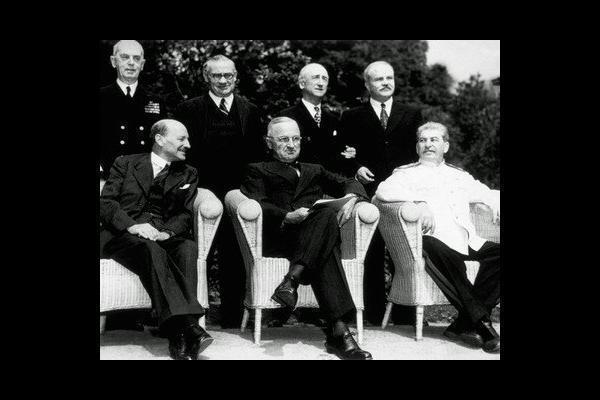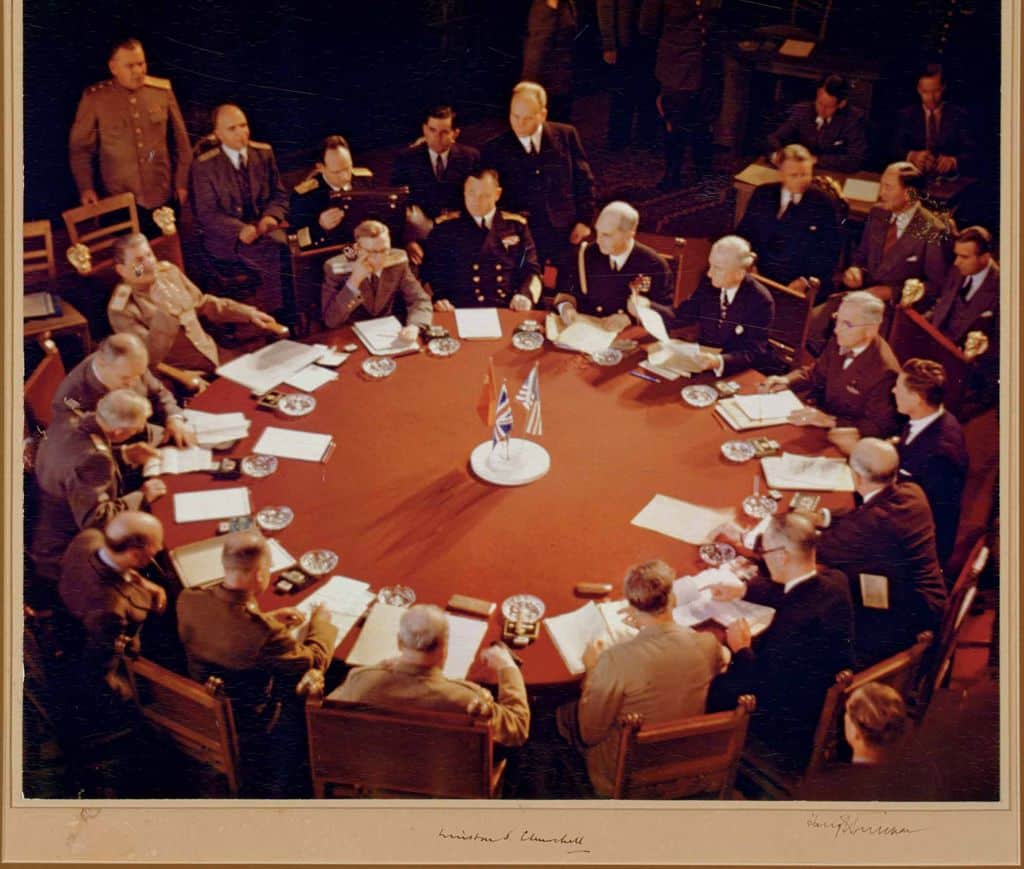

In eastern Europe, the governments of Romania, Hungary, and Bulgaria were already controlled by communists, and Stalin refused to let the Allies interfere in the region. Each country was most concerned with its own self-interest, and Churchill in particular was suspicious of Stalin’s motives and unyielding position. The goodwill that had largely characterized earlier wartime conferences was missing at Potsdam. After Japan rejected this ultimatum, the United States dropped atomic bombs on Hiroshima and Nagasaki. On July 26, 1945, an ultimatum was issued from the conference demanding Japan’s unconditional surrender and threatening heavier air attacks otherwise. While in Potsdam, President Truman told Stalin about the “new weapon” (the atomic bomb) that the United States intended to use against Japan. It is seen around the world as a symbol of the end of World. After World War II came to an end in Europe on, the leaders of Great Britain, the United States, and the Soviet Union held a.

This required moving millions of Germans in those areas to Germany. The Potsdam Conference is considered one the most important historical events of the 20th century. Poland’s boundary was set at the Oder and Neisse rivers in the west, and the country received part of Germany’s former East Prussia province. Each Allied power was to take reparations from its own occupation zones. Berlin, Vienna, and Austria were also each divided into four occupation zones. The Potsdam Conference was a formal summit meeting of the big three allied victors over Germany in July/August 1945, at a time when the war against Japan was. Truman, British Prime Minister Winston Churchill (or Clement Attlee, who became prime minister during the conference), and Soviet Premier Joseph Stalin. The Potsdam Conference’s Declaration on Germany stated: “It is the intention of the Allies that the German people be given the opportunity to prepare for the eventual reconstruction of their life on a democratic and peaceful basis.” The four occupation zones of Germany conceived at the Yalta Conference (February 1945) were set up-each to be administered by the commander-in-chief of the Soviet, British, U.S., or French army of occupation. Potsdam Conference, (July 17August 2, 1945), Allied conference of World War II held at Potsdam, a suburb of Berlin. The leaders also discussed the occupation of Austria, the borders of Poland, the determination of reparations, and the Soviet Union’s role in eastern Europe. The main concerns at Potsdam included the administration of defeated Germany and the continuing military campaign against Japan. A product of the Potsdam Conference, it concerned the military occupation and reconstruction of Germany, its borders, and the entire European Theatre of War territory. That task was left to a Council of Foreign Ministers. The Potsdam Agreement ( German: Potsdamer Abkommen) was the August 1945 agreement between three of the Allies of World War II: the United Kingdom, the United States, and the Soviet Union. Michael Neiberg - war studies chair at the U.S.The leaders discussed peace settlements for Europe but did not attempt to write peace treaties. The Potsdam Conference (July 17, 1945-August 2, 1945) was the last of the World War II meetings held by the Big Three heads of state: U.S. The Truman Library Institute provided this video. “super” weapon - it would soon be unleashed on the Japanese cities of Hiroshima and Nagasaki. Truman informed his Soviet counterpart about the new U.S.

It was during these meetings from July 17 to August 2 that Mr. This last of the three wartime conferences of the leaders of the Soviet Union. Roosevelt when he met with Britain’s Winston Churchill and the Soviet Union’s Josef Stalin. The Potsdam Conference holds a rather hazy place in American memory. President Truman had just assumed office after the death of Franklin D. Potsdam conference of 1945 had a great political impact on the destinies of the post-war Europe and the issue of peace. Army War College - talked about the personalities and stakes involved at the 1945 Potsdam Conference convened near the end of World War II.

T20:01:18-04:00 Michael Neiberg - war studies chair at the U.S. 2, 1945) of the principal Allies in World War II (the United States, the USSR, and Great Britain) to clarify and implement agreements previously reached at the Yalta Conference.


 0 kommentar(er)
0 kommentar(er)
